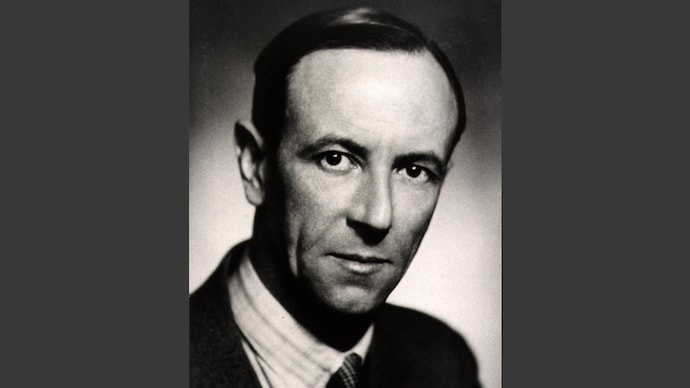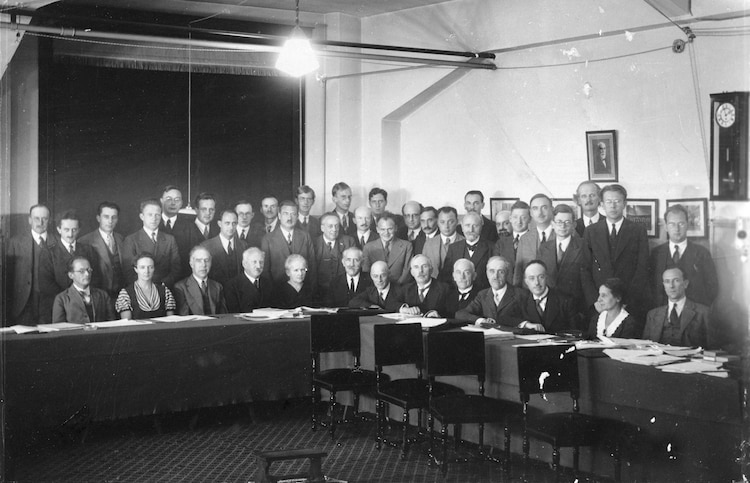James Chadwick, the quiet genius who discovered the neutron

James Chadwick, who discovered the neutron, transformed nuclear physics. The work of the Nobel Prize winner led to groundbreaking advancements in atomic theory, nuclear energy, and medical treatments, leaving an enduring legacy.
It was the summer of 1932, and James Chadwick had locked himself away in his lab, feverishly analysing data from his experiments. He knew something groundbreaking was just within his grasp.
When Chadwick finally emerged, he had data confirming the existence of the neutron—a particle with no electric charge. This discovery would forever change the world of physics and our understanding of the atom.
Quiet and unassuming, Chadwick’s work laid the foundation for nuclear energy and, eventually, the atomic bomb. Yet, his life story goes beyond just this one discovery.
Born on October 20, 1891, in Bollington, Cheshire, James Chadwick grew up in a modest household. His father was a railway storekeeper and cotton spinner, and his mother was a domestic worker. Although not wealthy, Chadwick’s family valued education.
When he was just four, his parents moved to Manchester, leaving him with his maternal grandparents. He attended Bollington Cross Primary School and was offered a scholarship to Manchester Grammar School. But his parents had to turn it down as they couldn’t afford even the small fees.
Instead, he joined Central Grammar School in Manchester, where he reunited with his parents and two younger brothers. A reserved and diligent student, Chadwick bagged two university scholarships at just 16.
Chadwick set off to study at the University of Manchester, where he would be mentored by one of the greatest physicists of the time and the man who went onto to discover the proton—Ernest Rutherford.
He earned a master’s degree in 1913.
IMPRISONED DURING WORLD WAR I
Following his master’s, Chadwick went to study under yet another great nuclear physicist, Hans Geiger, at the Technische Hochschule, Berlin.
When World War I broke out, in a twist of fate, he found himself interned in a German camp there. As a British citizen, he was seen as an enemy.
For four years, he was confined in the Ruhleben internment camp. Despite the harsh conditions, Chadwick continued his scientific pursuits, creating makeshift experiments with the limited resources available.
His sheer love for science and his resilience in the face of adversity became apparent during this period.
In 1932, Chadwick made a fundamental discovery in the domain of nuclear science. Chadwick was fascinated by an experiment done by Frdric and Irne Joliot-Curie that studied the then-unidentified radiation from beryllium as it hit a paraffin wax target. The Curies found that this radiation knocked loose protons from hydrogen atoms in that target, and those protons recoiled with very high velocity. In 1932, Chadwick tried similar experiments himself and hypothesized that the radiation ejected by the beryllium was, in fact, a neutral particle with approximately the same mass as a proton. Fig. 1 depicts a schematic diagram of the experiment done by Chadwick, following on experiments done by the Curies. He later tried other targets including helium, nitrogen, and lithium, which led him to determine that the mass of the new particle was in fact just slightly greater than the mass of the proton. [1] This is reflected in the current understanding of the mass of a neutron as 1.008701 amu or 1.6750 × 10-24 g and the mass of a proton as 1.007316 amu or 1.6727 × 10-24 g. [2]
After only about two weeks of experimentation, Chadwick wrote a paper in which he proposed that the evidence favored the neutron rather than the gamma ray photons as the correct interpretation of the radiation. Only a few months later, in May 1932, Chadwick submitted a paper announcing the discovery of the Neutron. The existence of a neutron as a new fundamental particle was firmly established by 1934. Chadwick was awarded the Nobel Prize in 1935 for its discovery. [3]

With Thanks Reference to: https://www.indiatoday.in/education-today/gk-current-affairs/story/james-chadwick-the-quiet-genius-who-discovered-the-neutron-2620115-2024-10-20 and http://large.stanford.edu/courses/2018/ph241/kuppermann2/







